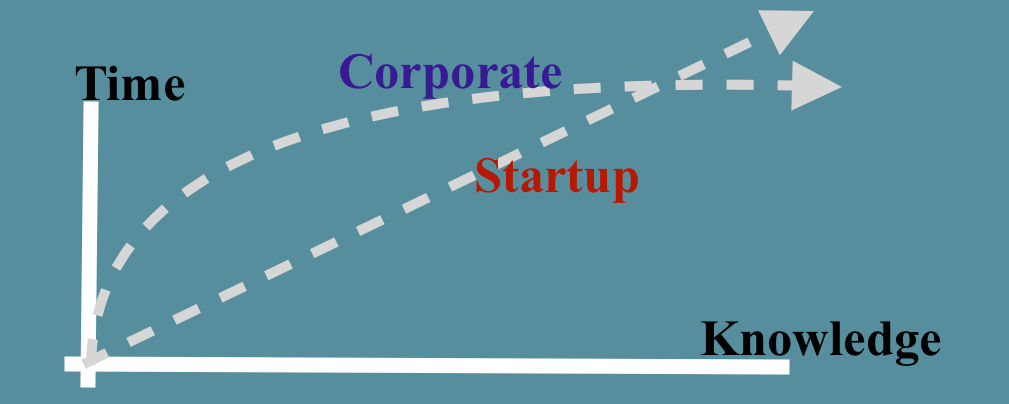Sun Jun 04 2017 · 7 min read
Mindset of Armenian Startups: The Dos and the Don’ts

By Artashes Vardanyan

Armenians are creative and we have hundreds of Armenians inventing new things. Furthermore, there is engineering and mathematical thinking in our DNA. But there are certain beliefs that might hinder the success of startups in spite of the potential we have.
The Armenian startup scene is changing rapidly with many interesting developments. These include some big acquisitions in 2012-2016, large rounds of funding led by top Silicon valley Venture Capital firms, the establishment of new entities, grant programs, events ready to fund, targeted support and help for startups to learn new things, find partners and grow.
Although there are many challenges regarding easy access to pre-seed money and accessibility to international networks, many young people in Armenia are taking their first steps in building products. In 2016 alone, more than 150 teams participated in various startup events, competitions and hackathons specifically targeting pre-seed stage startups. But very few of them (maximum 4-5) have been able to take their startup to the next level, productize their concept and secure validation with a small number of users.
The ecosystem is very vibrant but is still emerging with many challenges that limit the flow of the startup and causes the innovation funnel to decrease sharply; i.e less than 5 percent of those teams managed to productize their idea/concept in the proceeding 1-3 months. This article will not look at the ecosystem challenges that have affected this low number of concept productization, but will examine the current mindset and beliefs of Armenian startups.
There are a number of important issues related to Armenian startups, including their attitude towards building and growing startups, which I noticed during my three years of deep engagement with the startup community. And in my opinion, these also impact the startup funnel significantly.
What is a startup? It is generally a young entity which is operating in a highly uncertain environment trying to offer a product which is disrupting a big chunk of a traditional industry and can be globally scalable to address global problems. Not surprisingly, anybody launching a startup should consider a number of crucial factors: there is lots of uncertainty, it is going to be hard, the probability for failure is high, money is not waiting there on the table, clients are not standing in line to use your product. And most importantly complaining is not a solution to overcome these challenges.
Armenians are creative and we have hundreds of Armenians inventing new things. Furthermore, there is engineering and mathematical thinking in our DNA. We love to talk about these two things always and on any occasion and during any event. But there are certain beliefs that might hinder the success of startups in spite of the potential we have. Here are couple of them:
“I know how to do it; no need to learn new things”
A significant portion of Armenian startups don’t pay enough attention to a very important thing: a startup is a place where the majority of things are happening for the first time. So, there are tons of things that founders need to do by themselves, i.e. they need to learn new things because a small team comprised of 2-4 people should do marketing, sales, customer discovery, customer service, design, and lots of other things on top of building and shipping the product and modifying it every single day. The founders cannot allow themselves to learn slower as they have limited time and resources to convey to potential investors and customers that they are the best. Their learning curve should be superfast, thereby they need to be open to learning new things which are necessary to take their startup to the next level.

Startups cannot learn slower as they have limited time and resources to convey to potential investors and customers that they are the best.
“I am good at tech; I can build a good product”
Lots of Armenian startups are really experienced tech guys but are still weak at building experiences that connect to customers. There are many feature rich products with fantastic technical solutions but when it comes to “Who is your user,” and “What’s the need for this product for that concrete user” I usually hear answers like “We will figure it out” or “We don’t know.” There is no reason to spend time and resources on building a “hardcore” tech product which cannot be “productized” from the customer’s point of view and which has no value for a specific customer. Tech is very important to build a great product but it is equally important to deeply understand the use cases of a particular product and what are the problems that should be solved. Startups sometimes don’t see the full picture of the market and are not ready to do things on the grind to learn.

When it comes to “Who is your user?” I usually hear answers like “We will figure it out.”
“I don’t think this mentor can be of any value”
Lots of successful startups are very open to hear feedback from anybody, literally from ANYBODY, whether it’s a user or an expert or even a student. Early stage Armenian startups are still not very coachable. Many of the very early stage startups think that their approach is the only right direction. Most don’t understand how important it is to listen to diverse opinions, which are an important source of information to analyze and take further steps. It is very important for early stage Armenian startups to understand that these are critical to achieve product, customer acquisition, customer adoption or fundraising goals. Mentors are not superheroes, and they can’t say exactly what is wrong or right for your business. But the knowledge and experience of real mentors can be of huge value. Startups should however, be wary of those mentors who simply tell you what is right or wrong and whose interaction with a startup is mostly very similar to a lecturer-student teaching style. Effective mentors can give a startup direction and guidance and most importantly provide a startup with additional options for analysis, to take into account their counsel and then make the final decision.

Many very early stage startups think that their approach is the only right direction. Most don’t understand how important it is to listen to diverse opinions.
Sticking by a common statement: “We need money to succeed”
I see many startups who say, “I can’t do this or that without money; if I had money I’d build a 5 million dollar business.” My response in these types of cases is: “Are you crazy? If I had money I’d build a 500 million dollar business and not a 5 million dollar one.” Most entrepreneurs think that once they have raised some funds, they have all the authority in the world and success is guaranteed. That’s total nonsense! What most don’t know is the amount of businesses that fail after raising investments. Money is very important, nobody argues that, but there are milestones which are achievable without money: some examples are building an MVP (minimum viable product), talking to dozens of customers, understanding the problem more deeply and as a result dismantling some assumptions and bringing about certainty to some aspects of the startup. Usually some magic happens when small but important things are achieved without money. After that money just comes to accomplish some milestone and you get funds for the next milestone and so on. It’s important that early stage startups realize that money is not a destination or a marker of success. Success usually consists of going from failure to failure without loss of enthusiasm and this enthusiasm sometimes allows companies to survive when there is no money, no traction. But in Armenia, extending knowledge, for the most part, is not considered to be a natural stepping stone on the road to success.

Most entrepreneurs think that once they have raised some funds, success is guaranteed. That’s total nonsense! What most don’t know is that many businesses fail after raising investments.
Why should these beliefs be changed?
I understand that Armenian startups have a lot going against them. However, the chances of succeeding are much greater than they were 5-10 years earlier. There is periodically easy access to funding via grant programs, strong support groups, initiatives, successful entrepreneurs that are ready to help. But most of those programs, entities and individuals are ready to help startups which have a rapid learning curve, are coachable, who do not rely on their tech strengths alone, are communicable with mentors, and also understand that money is not the only factor for success.
On another note, I think that there is a chicken and an egg problem: the successful Armenia-based and Diaspora tech community want to deal with startups with “mature mindset and beliefs” but on the other hand there is lots of work to be done with educational institutions, creative centers, and incubators to change the mindset of startups. Constant engagement with young folks through these types of platforms is very important. Acting as mentors to early stage startups, sharing best practices in the latest tech trends, connecting Armenian startups to other markets and networking opportunities are probably only a few of the actions needed to change the mindset and beliefs of Armenian startups.
This can be a very important step for the bright future of the Armenian startup ecosystem and building the Silicon Mountain.


